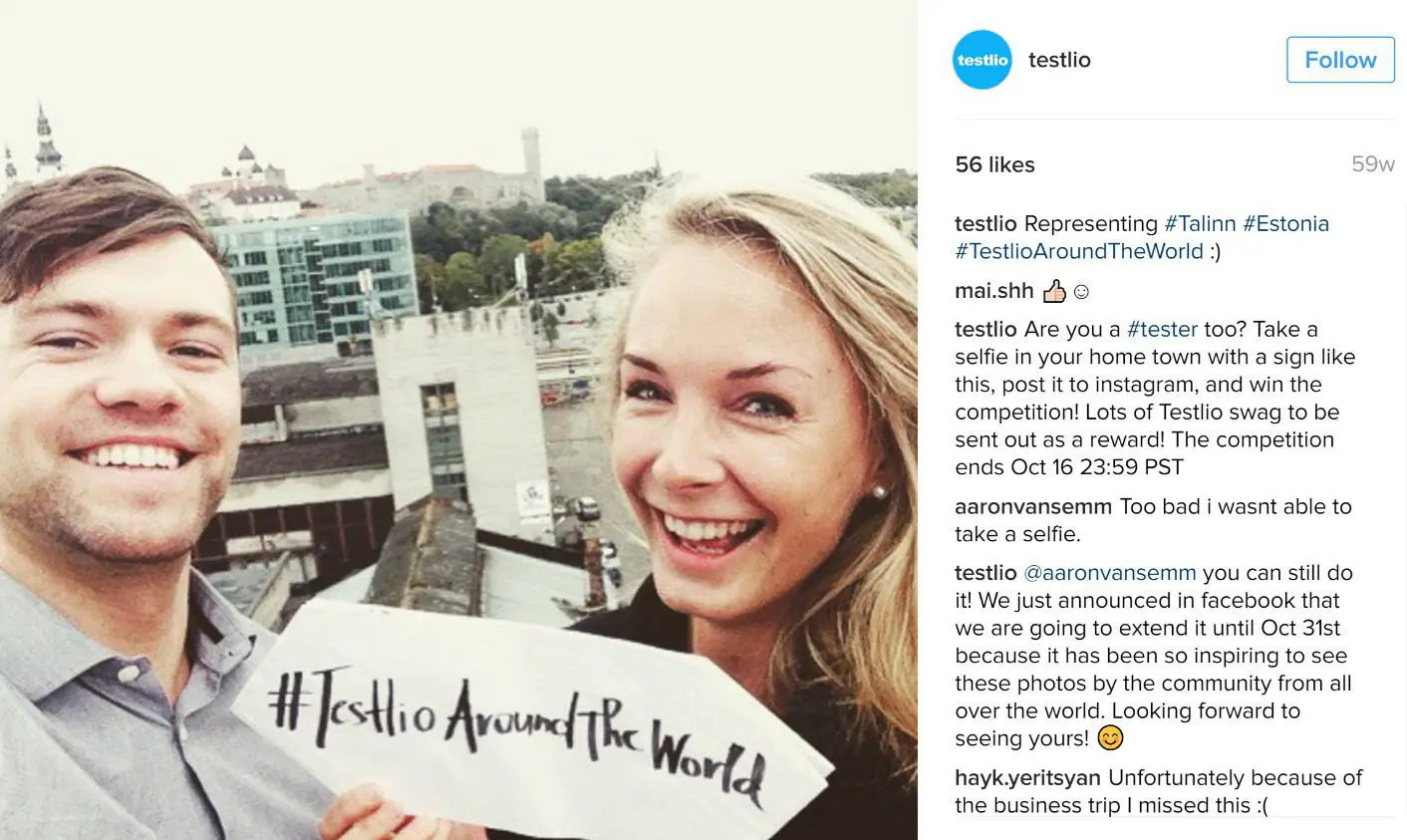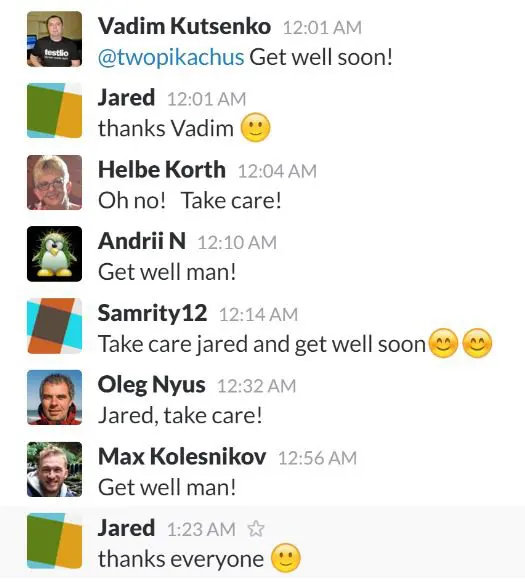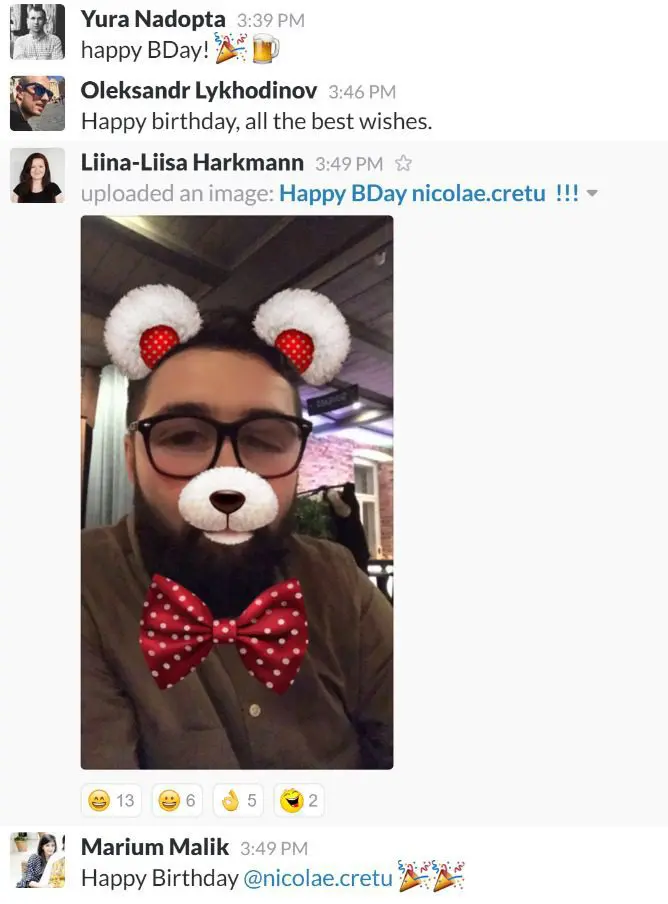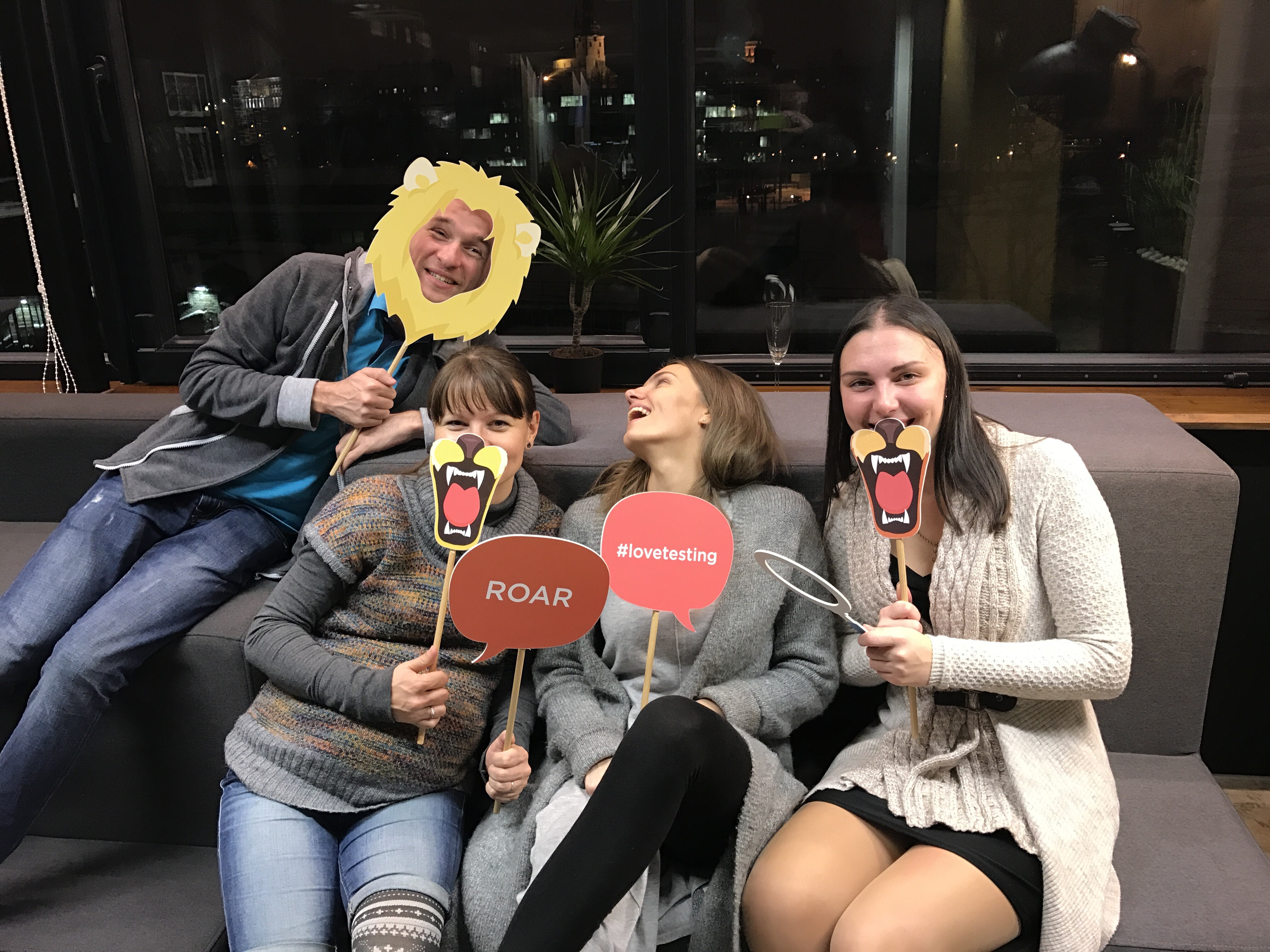How to Build a Community of Remote Testers That Really Feels Like a Community

So for us, the question wasn’t how to build an awesome remote culture for ourselves, it was how do we build an awesome remote culture for our entire network, including testers? How do we connect with them and connect them to each other?
Basically, how do we build a community?
Consciousness : the best thing about remote community building
Building culture and community can be a struggle for ALL startups. But here’s the thing: co-located groups may not worry about culture as much. They may not be as hyper-aware about how important it is to actively build.
With remote work (on the other hand), you don’t expect the culture to build itself.
You don’t wake up one day and realize you forgot to build a community—you’re fully conscious of it from the very start because you recognize that remote assets and teams present a challenge.
And that consciousness is a gift. Here are some of the conscious community building decisions made at Testlio and why.
Value testers
Don’t say duh!
Even though valuing remote assets, resources, freelancers or team members seems obvious, it’s incredible how many startups and businesses don’t actually do it.
In the US alone, the number of freelancers has grown to 55 million. Whether the remote resources your company works with are testers, writers, or developers you should never adopt a “plenty of fish in the sea mentality.” People can feel when they’re not valued—when you’re not flexible, want everything on your terms, give little feedback etc. etc.
So the foundational decision for community building at Testlio was to value testers. This is mostly just being a kind, caring human, but it’s also the basis of a great business. Testers who are valued feel even more passionate about testing than they did before and are motivated to grow their skills and serve customers with integrity. Plus, they bring in other great talent and spread the love and positivity between each other.

Work with cultural differences
Nobody likes stereotypes, so I won’t make any. But the truth is that there are noticeable cultural differences in how people work and behave. Maybe someone is quick to stand up for themselves or loud in how they make their point.
Another person might rarely ask questions or attempt to get clarifications.
Lots of differences in humility, brashness, confidence, and punctuality are due to personality, but the fact is, those differences can also be due to culture.
With remote testers, it’s important to not exclude people. This pertains more to QA management—making sure to adjust communication as needed for testers and knowing when and how to reach out—but having an inclusive management style bleeds into the community as well because testers feel welcome. We’re all adaptive, and that’s a two-way street.
Not only is the inhouse team skilled in working with other cultures, but also testers are excited to work with people from all around the world. The experience itself is a big draw.
Encourage personal interactions
Testlio testers are friends. Yay! Creating relationships based on a passion for testing or travel or gifs isn’t something you can force. But it is possible to stifle relationship-building it if you don’t create places for people to hang out and talk.
There are a lot of platforms for remote, non-work related hangouts, but for us, a few fun Slack channels does the trick. Testers get to know each other and we let community building happen naturally and informally.
It’s important to share funny memes, wish someone well when they’re sick, or get to see a fellow tester’s brand new baby. Pretending like personal connections (whether deep, silly, or simple) aren’t important is more than a farce, it’s damaging to the group’s ability to really feel like a team.

Our testers make friends with each other. Partly because we facilitate it, but mostly because they’re awesome. They do everything from encourage each other to learn new skills to share parenting advice.
Give praise, make announcements, and say congratulations
83% of employees care more about recognition than a reward or gift for a given effort. This goes back to feeling valued. Getting recognized or praised for awesome moments (whether accomplishments or work anniversaries) naturally elicits loyalty. We’re only human! No one wants their efforts to go unnoticed or to feel like they’re working in a vacuum where every “hello” is simply echoed back to them. That’d be sad.
Community managers at Testlio are very proactive about this. We make public announcements for things like birthdays and anniversaries and jobs well done.
Each team needs to find their own way to extend congratulations to their remote resources, but the simple act of doing it is all that really counts.

Build in meaning
For anyone to be good at what they’re doing, they have to care AND they have to feel like their manager cares as well.
Work should always mean something, because meaning gets you through the ups and downs of any skill or position. Work can skew from hard to miserable to fun, depending on the project, and meaning is what sees you through. Meaning lasts.
Testlio believes in testing as a highly valuable skill that deserves to be a recognized, respected, first-choice career. We like to spread the word about how cool testing is and how much it can develop your analytic and investigative skills. It’s so important to have those beliefs evident in our community, so we can work on spreading them together.
It’s also important to have more to offer than just the job. In addition to making money and meeting people from around the world, our testers have the ability to improve their English language skills, which is of course, invaluable.
Open your doors
Whoever you have in your remote network should feel 100% welcome to stop into the office and say hi when they are in your city.

If you live and work in San Francisco (for example) and one of your top freelancers or remote assets comes into town but doesn’t stop in for a visit, you’re probably doing something wrong. It’s not JUST about extending an open invitation for them to come meet you whenever they can, it’s about creating a place or a feeling that they will actually want to experience.
Testers can come to HQ at any time,and often do. Opening your doors for face-to-face interactions (and having people actually walk through those doors) is an enjoyable experience AND a reflection of the success of all other community building efforts.
Of course, at the heart of any culture building, whether remote or not, comes the emotions. For Testlio it’s about passion and respect.
What’s your experience been like with community building and remote work, whatever the type? Let us know in the comments below.